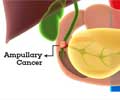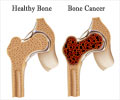What is Cancer Pain?
Cancer patients often experience pain. This pain is suggestive of both damage to the body and the body's response to the damage. The pain may be dull, achy or sharp; or it could be constant, intermittent, mild, moderate or severe.
The type of pain is indicative of the source of the pain. The character and intensity of cancer pain depends on:

- Type of cancer
- Stage of cancer
- Therapy used to treat cancer
Approximately 25-30% people with cancer complain of pain at the time of diagnosis, while every 1 out of 3 people undergoing cancer treatment experiences pain. The chance of experiencing cancer pain is higher in cases of advanced cancer or cancer that has spread or recurred.
Cancer pain has two sources:
- Nociceptive pain refers to pain due to damage in a part of the body. This pain is usually felt as aching or pressure
- Neuropathic (nerve) pain refers to pain caused due to damage of the nervous system. This pain is felt as a sharp shooting and stabbing sensation
The most common causes of cancer pain are the cancer itself and the treatment received to treat cancer. Any new pain or changing pain is often a sign of growing disease.
Cancer pain affects the overall quality of life. However, with today's knowledge of cancer pain and the availability of pain-relieving therapies, most cancer pain can be lessened to the point where the patient can be comfortable.
Unfortunately cancer pain is often under treated owing to the following factors:
- Doctor’s reluctance to specifically ask about pain or offer pain relief treatment
- Patient’s own reluctance to speak up about pain
- Fear of addiction to pain medications
- Fear of side effects of pain medications

















